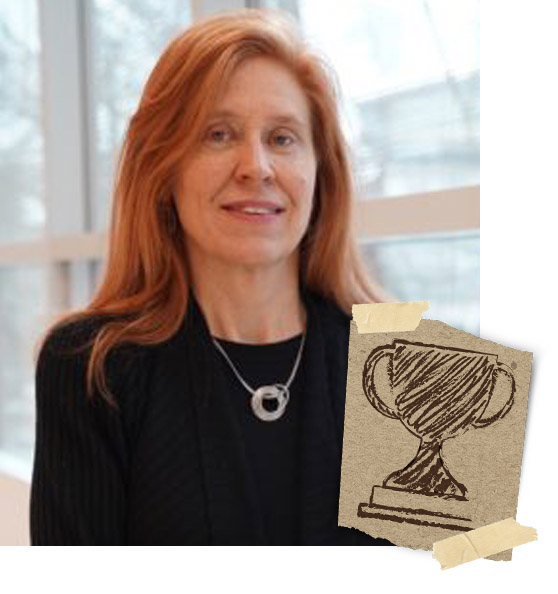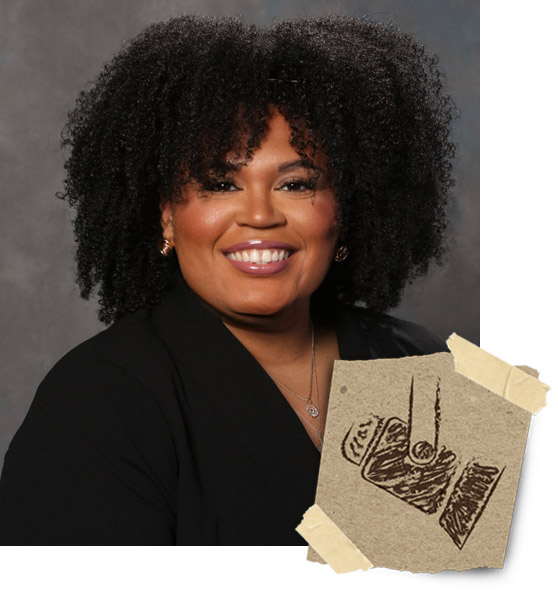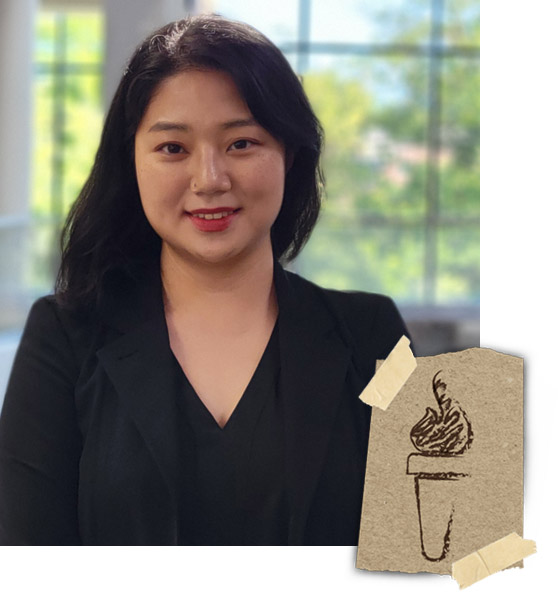Diversity Champion: Dr. Elizabeth Drexler
August 21, 2024 - Emily Jodway
 Dr. Elizabeth Drexler, Director of the Peace and Justice Studies program at Michigan State and an associate professor in the anthropology department, is our Diversity Champion for the month of August. Drexler has worked for decades as a researcher and an educator to understand cultural and historical issues linked to human rights and social justice. Through her classes, she introduces to students a unique lens for examining societal injustices, while also giving them the tools to work for social justice in their own lives. She is passionate about equity, human rights and representation, and is a perfect champion of diversity for August as we celebrate Women’s Equality Day.
Dr. Elizabeth Drexler, Director of the Peace and Justice Studies program at Michigan State and an associate professor in the anthropology department, is our Diversity Champion for the month of August. Drexler has worked for decades as a researcher and an educator to understand cultural and historical issues linked to human rights and social justice. Through her classes, she introduces to students a unique lens for examining societal injustices, while also giving them the tools to work for social justice in their own lives. She is passionate about equity, human rights and representation, and is a perfect champion of diversity for August as we celebrate Women’s Equality Day.
Growing up near Chicago, Drexler became aware of the privilege and comfort she was afforded from growing up in suburbia early on when she participated in social service tutoring in the city. She developed strong interests in literature, visual arts and inequality that were further explored at the University of Michigan’s Residential College. After graduation, she traveled and worked in a number of countries in Asia. Returning to the US, she worked with an organization focused on indigenous issues which set her on her path to anthropology.
Drexler chose Indonesia for her PhD research based on its strong cultural history and diversity of indigenous populations, and incredible environmental diversity. She ended up witnessing a pivotal moment in history: “I was there in 1998, during the uprisings against the long-standing authoritarian regime that eventually fell,” she said. “There was a great euphoria of reform, I was working with a lot of student activists, and it was an exciting time. It transformed my research focus. I was interested in transitional justice and this seemed like the opportunity to see how all these human rights reforms were going to happen.”
Drexler earned her PhD in Anthropology at University of Washington, where she was able to work with scholars studying Southeast Asia, Comparative Law, and Legal Aid activism. “For me, anthropology was always about culture, social justice and power, and I was always interested in the cultural life of the law and thinking about how law is used,” she explained.
She began work at MSU in 2002 teaching in the anthropology department and working with colleagues in the Peace and Justice specialization. At that time, the minor was very broad in scope, and Drexler was part of the conversation about a more coherent identity and direction for the program. She was asked to be its Co-Director, eventually becoming Director in 2009.
“I think the unique contribution Peace and Justice Studies offers is that we take an intersectional and multidimensional perspective,” Drexler explained. Students in the College of Social Science and other units across campus can consider different ways to approach their field, such as a neuroscience major learning about the impact of systemic racism in medical practice, or an environmental scientist connecting their studies with themes of economic justice. Students learn about societal issues involving representation, human rights, sovereignty and activism, as well as the importance of the past in the present, and the global and local forces both creating injustice and perpetuating it.
“We are working beyond disciplinary silos, and we have amazing students from all across campus, and that’s been really inspiring,” she added.
In fact, the students are Drexler’s favorite part of teaching at Michigan State. “I love seeing students have moments when something changes, or helping them to realize what their passions are, what they want to do in the world, or realizing their unique skills and the kinds of contributions they can make,” she said.
She also enjoys challenging students and giving them the opportunity to express themselves and excel in new ways. From students who take classes with the hope of one day entering into a field involving anthropology or peace and justice, to students who casually add a class out of general interest or schedule availability, she wants each and every one to walk away with new skills and ways of thinking for whatever they choose to do in life.
“I believe that peace and justice is a huge project, and we all need to do what we can. We are in desperate need of figuring out how to navigate a very difficult moment in history,” she said. “Everybody isn’t going to be a full-time human rights worker for the UN, but what are the ways that we can still contribute to making a more just, equitable world both locally and globally?”
Drexler sees Women’s Equality Day and the celebration of the signing of the Nineteenth Amendment as an opportunity to recognize the struggle that these women went through to receive voting rights and equality, but also as a continued opportunity to think about ways we can protect the rights of all individuals.
“The project of voting rights is very much incomplete,” she said. “I think it’s really important to pay attention to how voting rights for particular communities and individuals have been undermined in recent years.”
Like her teachings within Peace and Justice Studies, Drexler sees voting rights as an intersectional issue that transcends gender and affects individuals from many different and overlapping races, communities and identities, and can impact the fight for equality for everyone.
“I think it's important to think about equality for women, but we need to think about what kinds of policies can be enacted to protect the rights and equality of all people. It’s important to have representation by identity, but we also need to have people who are thinking about policies for addressing structural injustice based on multiple and intersectional of forms of inequity.”
Read more:

Diversity Spotlight
Alumni
Diamond Day-Parker
Diamond Day-Parker is our Diversity spotlight honoree for August. A 2019 graduate of the Interdisciplinary Studies program, Day-Parker concentrated her studies around health and society. She is currently a Public Health Consultant for the Michigan Department of Health and Human Services, and is passionate about health education, community outreach, and support for Black women and new and expectant mothers.

Diversity Torch
Student
Dasom Jang
Dasom Jang is our Diversity torch honoree for the month of August. A doctoral student in the School of Human Resources and Labor Relations, Jang studies employee well-being and gendered culture in the work place, with a particular interest in work-life balance and conflict, parental leave and the differences between these across cultures.

Diversity Matters
We strive to cultivate an inclusive and welcoming college environment that celebrates a diversity of people, ideas, and perspectives.

